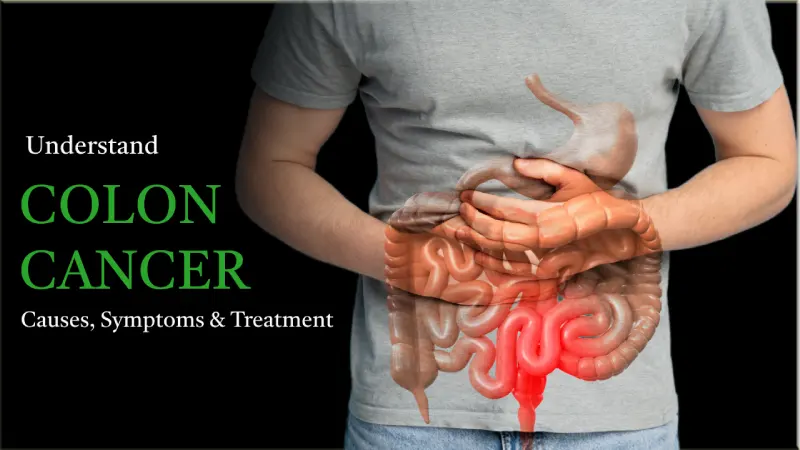Are you anxious? Maybe you get nervous before delivering a speech, or you’re worried about the results of a medical test. Anxiety is part of life. It’s a normal human emotion. For most people, stress only lasts for a short time.
But for others, these feelings are more than just a stressful time at work or passing worries. Your anxiety may last for weeks or even months. It can persist over time and interfere with your routine.
Such a condition is referred to as anxiety disorder. When left untreated, anxiety disorders can make you depressed because of the constant and extended worry and fear. Identifying your disorder is an essential part of receiving treatment.
Here are 6 common types of anxiety disorders and how to deal with them.
1. Generalized Anxiety Disorder
In most cases, people feel worried when faced with stressful situations such as speaking in public, taking an exam, or going for an interview. This types of anxiety disorders can make you feel focused, thus helping you perform at your best.
However, when you’re suffering from general anxiety disorder (GAD), you won’t just feel anxious in specific stressful situations. The worries are persistent, intense, and may even interfere with your lifestyle.
Even minor things like being late for an appointment can make you anxious. This can lead to an uncontrollable feeling that something terrible might happen.
So, How Do You Go About This?
When it comes to treatment, seeking professional assistance is your first step towards recovery. Generally, there are two types of treatments for GAD. The first line of treatment is psychological, and in severe cases, medication can also apply.
2. Obsessive-Compulsive Disorder (OCD)
This is a type of disorder whereby patients have recurring ideas or obsessions that make them feel compelled to do something repetitively. Repetitive behaviors such as checking on things, hand washing can interfere with your daily life and social interactions.
For people with OCD, not performing these actions may cause significant distress. They often feel intense about having to execute these compulsions. The feeling of shame can worsen the problem, and the secrecy associated with OCD can cause late diagnosis and a delay in treatment.
It can also lead to social disability, for instance, when adults become housebound, or children fail to attend school. This types of anxiety disorders comes from a combination of environmental and genetic factors. Social factors, family history, and psychological factors may also increase the risk of having OCD.
Treatment
If a subject is struggling with OCD, receiving the appropriate anxiety treatment NYC can improve their life quality. What’s more, it can enhance your ability to function at work or in school, pursue leisure activities, and enjoy relationships.
Cognitive-behavioral therapy (CBT) is one of the most effective modes of treatment. During the treatment sessions, you’re exposed to images that mainly focus on the obsessions that initially led to increased anxiety.
The therapists then instruct you not to perform your usual compulsive behaviors. That way, you get to learn that your fearful thoughts are simply thoughts rather than reality. Taking an antidepressant such as the selective serotonin reuptake inhibitor (SSRI) can also help reduce compulsions and obsessive behaviors.
3. Panic Disorder
Most people have a panic attack at least once in their lives. According to the American Psychological Association, 1 out of every 75 persons might experience a panic disorder. This type of anxiety disorders consists of two main features:
- Experiencing recurring unexpected panic attacks
- Displaying periods of excessive worry about experiencing another attack
Panic attacks are extreme periods of fear that can affect your physical functioning, like sweating, and emotional functioning, such as feeling like you’re going crazy. It’s essential to note that several mental and physical conditions can be associated with these attacks.
If you’re experiencing repeated panic attacks, you should have a physical evaluation as it might be signs of an endocrine issue like a cardiovascular problem.
How to deal with panic disorder
Here, the treatment mainly focuses on eliminating your symptoms. You’ll need a qualified professional to take you through therapy and, in some instances, medication. Therapy typically involves CBT, which helps you change your thoughts to manage your fear.
4. Post-Traumatic Stress Disorder (PTSD)
Post-traumatic stress disorder (PTSD) occurs in people who’ve been traumatized before or experienced events that threatened their life. This could be physical or sexual assault, a car accident, or torture. As a result, these people may experience feelings of helplessness, intense fear, or horror.
Symptoms can include upsetting dreams of the horrific event, difficulty relaxing or avoiding things associated with the event. To be diagnosed with this anxiety disorders, you must have experienced such symptoms for not less than a month.
It’s also common for people who have PTSD to have other mental health problems. These may develop in response to the distressful event. Keep in mind that such issues are more likely to happen if the condition has persisted for too long.
Treatment
Effective anxiety treatment NYC mainly involves taking therapy, but your healthcare provider can also recommend medication in some cases. Generally, it’s wise, to begin with psychological treatment instead of focusing on medicine as your only solution.
Read Also: 5 Tips to Control Depression Naturally
5. Social Anxiety Disorder (Social Phobia)
Social phobia is where you have excessive anxiety concerning a social situation where other people scrutinize you. Such conditions can include being watched when eating, speaking in public, or interacting with unfamiliar people.
You’ll often feel that you’ll be humiliated through these interactions; hence prefer to avoid them altogether. If forced to perform, you might do so under extreme duress.
How is social phobia treated?
The treatment you get majorly depends on how much social phobia affects your routine and ability to function in daily life. The most effective modes of treatment include psychological counseling, medication, or both.
In therapy, you learn how to identify and change negative thoughts and develop skills to gain confidence. You may also participate in role-playing to sharpen your social skills and become more confident when relating to others.
6. Specific Phobias
Unlike the short-term anxiety you feel before taking a test or public speaking, specific phobias cause intense psychological and physical reactions. You may feel very fearful about a particular situation and do everything possible to avoid it. For instance, boarding a plane or having an injection.
Fear or concern about animals, objects, or a particular situation isn’t uncommon. Fear is a rational response that anyone can experience because of conditions that threaten their safety. However, other people react to situations by irrationally exaggerating the threat.
Their feelings of terror are totally out of proportion to the danger at hand. In some cases, just a thought of the activities is more than enough to cause a reaction.
Such excessive reactions may indicate a specific phobia. This condition is often associated with panic attacks.
Treatment Options
Like the other types of anxiety disorders, a mental health professional can treat the specific phobia. You’ve got several treatment options to choose from medication, therapeutic technique, or a combination of the two.
In sum
Remember that anxiety is common and treatable. You should also note that it takes time before you start seeing the results of treatment. So, be patient and follow your doctor’s directions for the best outcome.
But you can always seek treatment elsewhere if you’re not making enough progress or you feel uneasy with your healthcare provider. Quick recovery!
More Articles:




